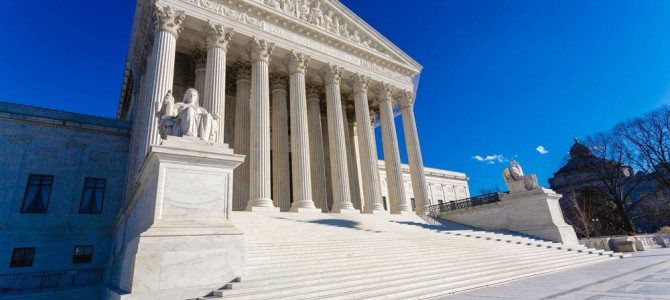The Supreme Court ruled on Monday that The Little Sisters of The Poor would not have to pay millions in IRS fines for refusing to violate their religious beliefs. The ruling vacated lower court rulings against the Little Sisters, and accepted the government’s admission that it could meet its goals of providing contraception to women without involving the Little Sisters or using their plan.
The Little Sisters are a Catholic organization that provides housing and care for the elderly poor. In accordance to their religious beliefs, they do not provide contraceptives to their female employees, but this violates a regulation stemming from the Affordable Care Act, or Obamacare.
The justices unanimously told the government they cannot fine or tax The Little Sisters for refusing to provide contraceptives to their employees, which will save the organization from having to shell out millions of dollars in IRS fines for its refusal.
Supporters of the regulation insisted that the ruling wasn’t significant, but religious liberty advocates praised it.
“This is a game-changer. This unanimous decision is a huge win for the Little Sisters, religious liberty, and all Americans,” said Mark Rienzi, senior counsel at The Becket Fund for Religious Liberty. “The Court has accepted the government’s concession that it could deliver these services without the Little Sisters. The Court has eliminated all of the wrong decisions from the lower courts and protected the Little Sisters from government fines.”
In their ruling, the Supreme Court vacated previous judgements of the case, sending it back to be decided at the lower court — with explicit instructions to find a compromise in tweaking the contraceptive mandate to be rid of religious concerns.
The government had repeatedly argued that there was no way to deliver contraceptive services except for the path laid out in the regulatory mandate. However, those regulations had been redrafted nine times, while the Little Sisters consistently opposed participating in the mandate. In front of the Supreme Court, the government admitted that the latest regulation required the forced participation of the Little Sisters and that they did, in fact, have other ways to deliver the services without compelling their participation.
Rather than decide a Religious Freedom Restoration Act case — in which the court would have to determine whether the Little Sisters’ strongly held religious beliefs trumped government interest — the court told the government to meet its goals through one of the other many options it now admitted it could utilize. That’s why the ruling issued from the highest court in the land decision is being called a win for religious liberty even though the court did not weigh in on whether or not religious groups like The Little Sisters can be legally compelled by the government to provide contraceptives via Obamacare.
“[This is] confirmation of what we have been saying all along,” Rienzi said. “The government doesn’t need nuns to give out contraception.”
The recent passing of Justice Antonin Scalia has positioned the court in an ideological split — as the court has issued two 4-4 rulings since Scalia’s passing in February. However, today’s ruling in support of the Little Sisters and vacating lower court decisions was also significant in that it was a unanimous one, Rienze noted.
“The Little Sisters won, but what this unanimous ruling shows is that there was never a need for anyone to lose,” said Rienzi. “The government will still be able to meet its goal of providing these free services to women who want them—not just for those with religious plans—but for the tens of millions in exempted corporate and government plans.”








